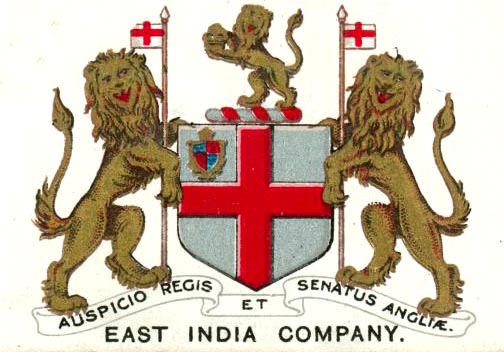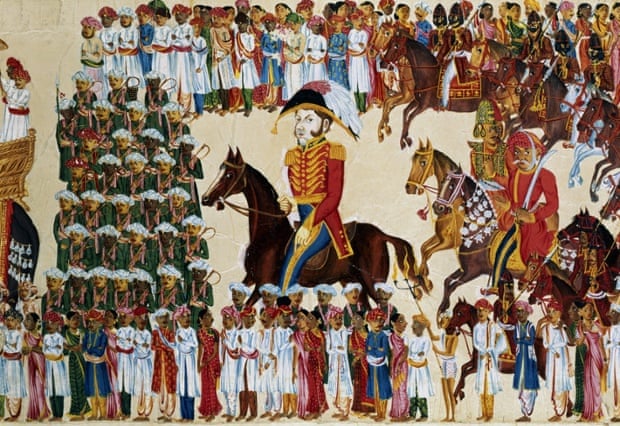The East India Company: The original corporate raiders
William Dalrymple
For a century, the East India Company conquered, subjugated and plundered vast tracts of south Asia. The lessons of its brutal reign have never been more relevant.
The East India Company no longer exists, and it has, thankfully, no exact modern equivalent. Walmart, which is the world's largest corporation in revenue terms, does not number among its assets a fleet of nuclear submarines; neither Facebook nor Shell possesses regiments of infantry.
Yet the East India Company – the first great multinational corporation, and the first to run amok – was the ultimate model for many of today's joint-stock corporations. The most powerful among them do not need their own armies: they can rely on governments to protect their interests and bail them out. The East India Company remains history's most terrifying warning about the potential for the abuse of corporate power – and the insidious means by which the interests of shareholders become those of the state. Three hundred and fifteen years after its founding, its story has never been more current.
Full Text:
http://www.theguardian.com/world/2015/mar/04/east-india-company-original-corporate-raiders
William Dalrymple


For a century, the East India Company conquered, subjugated and plundered vast tracts of south Asia. The lessons of its brutal reign have never been more relevant.


The East India Company no longer exists, and it has, thankfully, no exact modern equivalent. Walmart, which is the world's largest corporation in revenue terms, does not number among its assets a fleet of nuclear submarines; neither Facebook nor Shell possesses regiments of infantry.


Yet the East India Company – the first great multinational corporation, and the first to run amok – was the ultimate model for many of today's joint-stock corporations. The most powerful among them do not need their own armies: they can rely on governments to protect their interests and bail them out. The East India Company remains history's most terrifying warning about the potential for the abuse of corporate power – and the insidious means by which the interests of shareholders become those of the state. Three hundred and fifteen years after its founding, its story has never been more current.
Full Text:
http://www.theguardian.com/world/2015/mar/04/east-india-company-original-corporate-raiders





































No comments:
Post a Comment